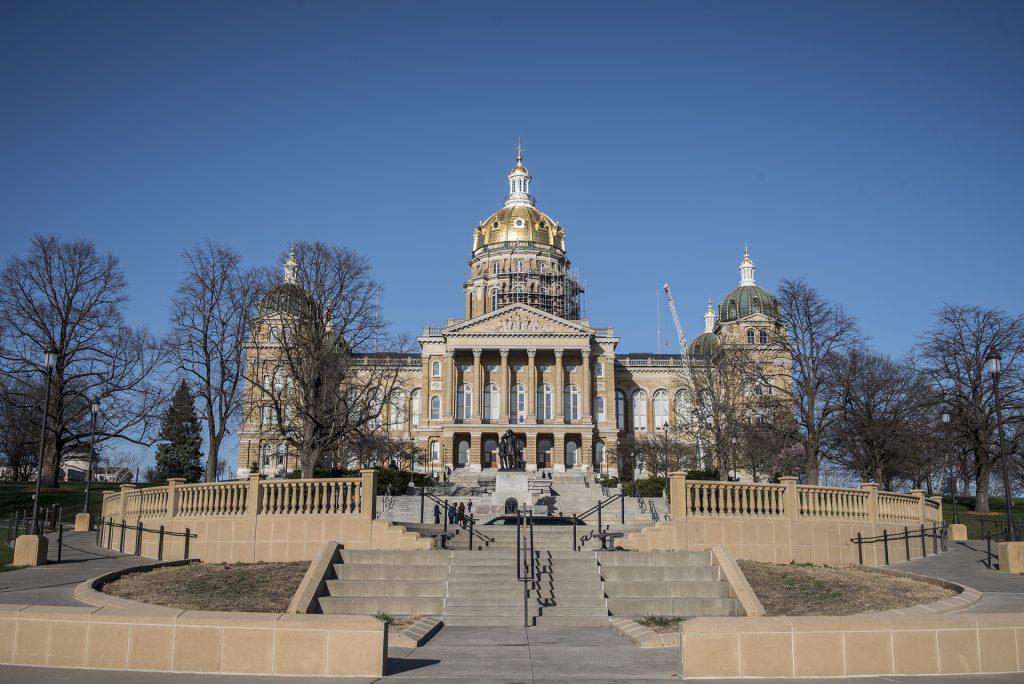Zach Weigel [email protected]
Aside from planning for Fourth of July festivities, the end of June also marks the end of the Supreme Court’s term, and a recent decision by the court could prove to be an powerful one — states will be able to generate more revenue. Maybe, perhaps hopefully, this additional revenue could be used to fund education in Iowa.
On a 5-4 decision, the Supreme Court ruled a week ago that online retailers are no longer immune from collecting sales tax. That means all e-commerce is now subject to sales-tax enforcement. Consequently, that tax money will matter for all Iowans for two chief reasons.
First, and foremost, starting in January 2019, it will matter if you buy anything online because you will assuredly have to pay sales tax on it. That means that a $100 online purchase will become $106 after Iowa’s 6 percent sales tax is applied, regardless of what retailer you buy from.
And second, the court’s decision matters because it could be a boon for the state’s coffers. Specifically, according to a 2017 Government Accountability Office estimate, Iowa could generate $104 million to $146 million in additional revenue. Now, that’s a sizable chunk of change.
It makes one wonder, what could the money go toward?
Well, at least some of the $100-plus million could and should go toward funding higher education, especially if the Democratic gubernatorial ticket of Fred Hubbell and Rita Hart beats incumbent Republican Gov. Kim Reynolds in November’s election. Just last week at the start of their campaign, Hubbell and Hart championed “increased investment” in education as one of their priorities. This is a clear distinction from the Reynolds administration, which cut higher-ed funding for the state Board of Regents by $10.9million earlier this spring.
So, with the Supreme Court’s decision, perhaps higher ed and public ed writ large could see an uptick instead of a cut in their next budgets, thanks to sales-tax revenue from e-commerce.
However, budgetary math is seldom that simple. In reality, some of the increased revenue from sales tax will be offset by the Reynolds-signed tax bill that cut income taxes for Iowans earlier this spring. At the same time, as part of this tax bill, Iowa will also start taxing online streaming services and video downloads/rentals such as Netflix in addition to ride-share platforms such as Uber and Lyft. Thus, the math is bit trickier. The GAO’s $104 million to $146 million estimate of additional revenue will likely be affected by parts of the tax bill Reynolds signed earlier this spring.
What does all this tax mumbo-jumbo equate to? Well, when you juxtapose the Supreme Court’s decision with Iowa’s budget situation, there may be an opportunity to stop the massive disinvestment in education in Iowa. But there are two things that will go a long way toward deciding the future of education funding in the state.
No. 1, who controls the governorship will likely play a role. The Hubbell-Hart ticket has pledged education as a top priority. The Reynolds administration also lists education as a priority. But cuts to education earlier this year don’t exactly lead one to believe that education is a top priority for Reynolds.
Second, how the Reynolds-signed tax bill from earlier this year ultimately shakes out on the balance sheet will either constrain or give free rein to discretionary spending. Usually, tax cuts mean the state gets less money; however, with the Supreme Court’s decision and Iowa’s newly devised other methods of generating additional sales-tax revenue, the state could have some money to play with in the future — if the additional revenue isn’t completely wiped out by the Reynolds-sponsored tax cuts, that is.
Only time will tell how the budget shakes out. Yet, there does seem to be a glimmer of hope for education funding in Iowa because there are new ways for the state to generate revenue. Nonetheless, opportunity doesn’t always pan out. Our state’s leaders will have to prioritize education funding and hope that the recent income-tax cuts don’t completely offset this newfound revenue opportunity.










